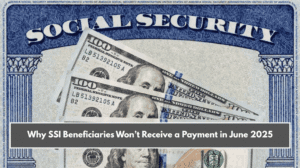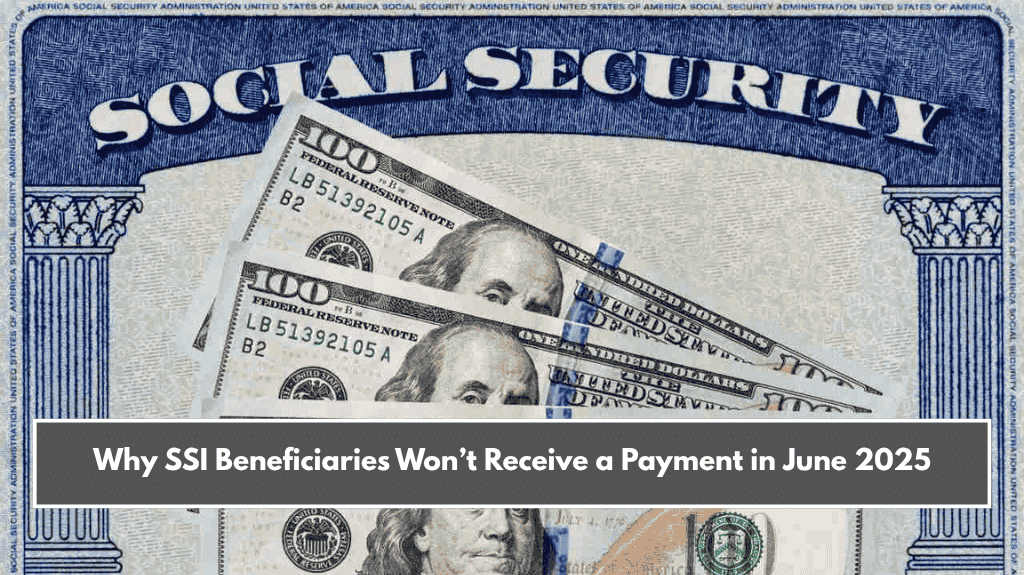In a monumental move, the Social Security Fairness Act has officially repealed the Windfall Elimination Provision (WEP) and the Government Pension Offset (GPO), two rules that have unfairly reduced Social Security benefits for public-sector workers for decades. This legislation, which comes into effect in April 2025, will bring relief to over 3 million Americans, including teachers, firefighters, police officers, and other public workers. Here’s everything you need to know about this significant change and how it will affect your retirement income.
Key Highlights of the 2025 Social Security Fairness Act
The Social Security Fairness Act is a crucial change to the way Social Security benefits are calculated for public-sector workers. Here’s a quick overview of the key details:
| Feature | Details |
|---|---|
| Average Monthly Increase | $360 per month |
| Repealed Provisions | WEP (Windfall Elimination Provision) and GPO (Government Pension Offset) |
| Who Benefits | Teachers, firefighters, police, and other public workers |
| Effective Date | April 2025 for new payments; backdated to January 2024 |
| Retroactive Lump Sum | Includes 15 months of missed payments |
| Official Resources | SSA.gov, Congress.gov, NEA.org |
This long-overdue correction means that public-sector workers who paid into both Social Security and a government pension system can finally expect more fair treatment when it comes to their retirement benefits.
What Was Repealed?
For decades, the Windfall Elimination Provision (WEP) and Government Pension Offset (GPO) caused financial hardship for public workers. Here’s what each rule did:
- WEP: Reduced your Social Security benefits if you had a government pension from a job not covered by Social Security, even if you paid into the system through other jobs.
- GPO: Cut or eliminated spousal and survivor benefits for people with a government pension.
These provisions were especially harmful for public employees who had mixed careers—working in both Social Security-covered jobs and government pension-covered jobs. For example, teachers, police officers, and firefighters who worked in both sectors were penalized for their public service. The repeal of these provisions corrects this longstanding unfairness.
Who Is Eligible for the New Benefit Boost?
You may qualify for the new benefit increase if you meet the following criteria:
- You worked in a non-Social Security-covered job (like teaching or local government work).
- You have at least 10 years of Social Security-covered work (40 quarters).
- You are a spouse, surviving spouse, or former spouse affected by the GPO.
- You are currently receiving or applying for Social Security and were impacted by WEP or GPO.
Real-Life Examples of the Changes
Here are a few real-life examples of how the repeal of WEP and GPO will affect retirees:
- Linda, a retired teacher, saw her Social Security benefits cut by $500 due to WEP. She will now receive the full $1,200 benefit, plus back pay dating to January 2024.
- James, a firefighter, was denied spousal benefits because of GPO. He will now be able to collect spousal payments retroactively.
- Maria, a nurse who worked in both public health and private practice, will now receive full Social Security benefits based on her entire work history, not just her private sector job.

How Much Will You Get?
The average bump in Social Security benefits will be $360 per month, but this amount may vary depending on the size of your pension and your work history. Some beneficiaries may see increases as large as $600 or more per month.
- Larger prior cuts will result in larger boosts.
- Spousal/survivor eligibility may now open doors for additional benefits.
- More Social Security work means more benefits.
In addition to the monthly increase, eligible retirees will also receive retroactive payments for 15 months (from January 2024 to March 2025), which could total anywhere from $5,000 to $10,000 or more, depending on how much was withheld due to WEP or GPO.
Payment Timeline
Here’s the official rollout schedule for the new benefits:
| Month | Action |
|---|---|
| March 2025 | Retroactive lump-sum payments begin |
| April 2025 | Monthly benefits increase in regular payment cycle |
| May 2025+ | New monthly payment becomes standard for all beneficiaries |
You can check your My Social Security account for updates and ensure your information is current.
What Should You Do?
If you’re already receiving Social Security benefits, you don’t need to reapply. The SSA will automatically recalculate and adjust your benefits. However, there are a few things you can do to ensure everything is in order:
- Log in to your MySSA account to check your earnings record and personal information.
- Review your Social Security statement to verify any WEP/GPO reductions.
- If you’ve delayed applying for benefits due to WEP or GPO, it’s time to apply now.
- Visit your local SSA office if you’re newly eligible for spousal/survivor benefits.
- Keep an eye on your mail and email for official notifications from the SSA.
Tax Considerations
While the extra money is great, it may have tax implications:
- Lump sums could be considered income for 2025 unless you spread the payments over prior tax years.
- Social Security benefits may become taxable if your total income exceeds:
- $25,000 for single filers
- $32,000 for married couples
- Medicare premiums could increase based on your new income level.
Pro Tips:
- Talk to a tax advisor or CPA to understand how the lump sum and extra benefits might affect your tax situation.
- Track your lump-sum payments separately for tax purposes.
- Consider adjusting withholdings or estimated payments if necessary.
Why It Matters
For over 40 years, public workers were penalized by the WEP and GPO, often losing hundreds of dollars each month in Social Security benefits. The repeal of these provisions restores fairness, ensuring that educators, first responders, and surviving spouses receive the benefits they rightfully earned. This act is not just about policy change—it’s about recognizing hard work and financial justice for those who served the public.
This correction is long overdue, and it will significantly improve the financial security of millions of retirees who have spent decades working in both government jobs and Social Security-covered positions. Finally, public-sector workers and their families can retire with the dignity and benefits they deserve.















